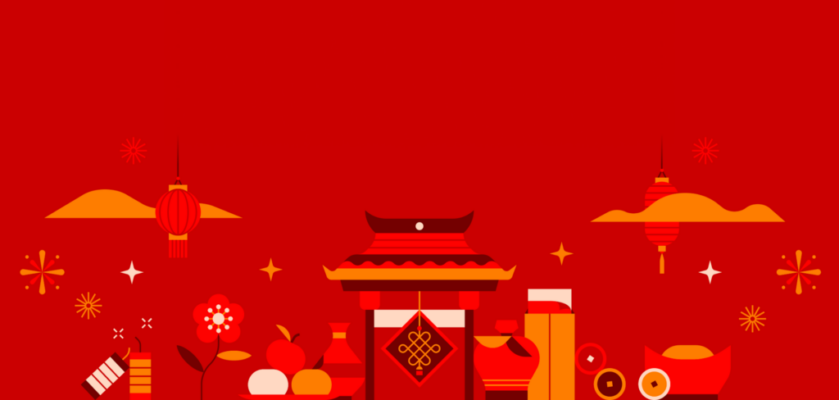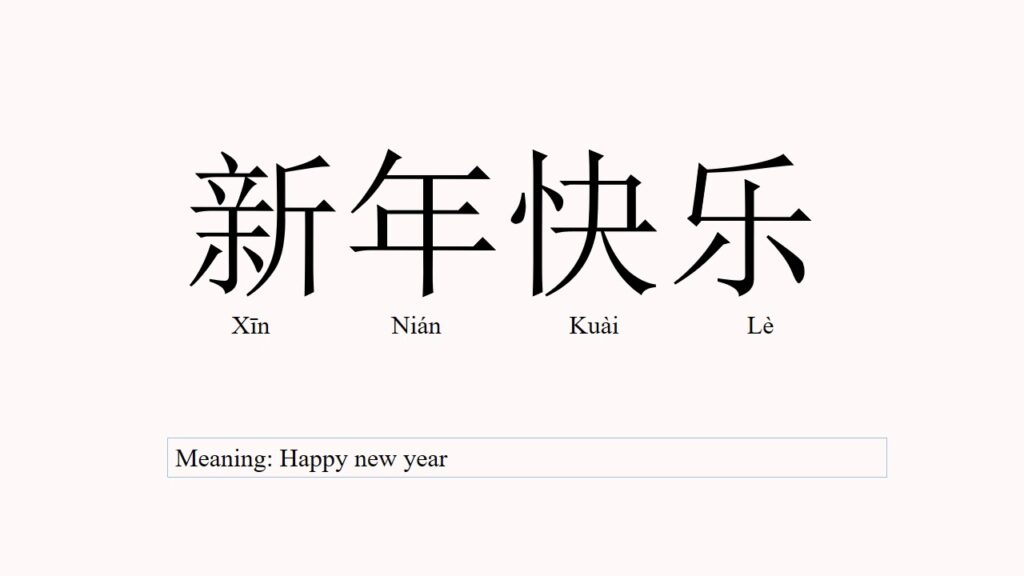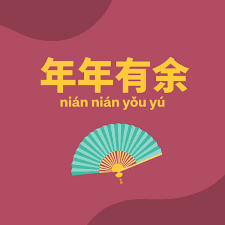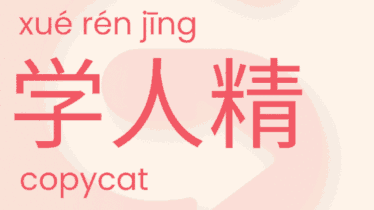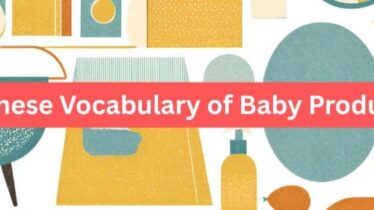How to say Happy New Year in Chinese?
Chinese New Year is not a ordinary holiday—it’s a big deal! I mean, we’re talking about the most significant and eagerly awaited celebration in Chinese culture. It’s all about family, traditions, good luck, and new beginnings. So, buckle up and get ready to impress everyone with your Mandarin skills. Let’s jump right in and discover how to say “Happy New Year” in Chinese!
How to say Happy New Year in Chinese?
Here are some common phrases you can use to say Happy New Year in Chinese: 1.”新年快乐” (Xīnnián kuàilè); 2.”过年好” (Guònián hǎo); 3.”恭贺新禧” (Gōnghè xīnxǐ).
1. “新年快乐” (Xīnnián kuàilè)
When it comes to expressing “Happy New Year” in Chinese, we have the phrase “新年快乐” (Xīnnián kuàilè). Here’s how we can understand it: “新年” (Xīnnián) means “New Year,” referring to the fresh start and the beginning of a new cycle. “快乐” (kuàilè) translates to “happy” or “joyful.” Combining the two, “新年快乐” (Xīnnián kuàilè) conveys the well-wishing for a joyful and happy New Year.
This phrase holds immense significance during Chinese New Year celebrations, where people exchange greetings and blessings for a prosperous year ahead. You’ll commonly hear and see “新年快乐” (Xīnnián kuàilè) being shared among friends, family, and even strangers during this festive time. It’s a way to express good wishes, happiness, and positive vibes for the upcoming year.
So, when you greet someone with “新年快乐” (Xīnnián kuàilè), you’re not only conveying your wishes for a happy New Year, but you’re also participating in a cherished tradition of spreading joy and goodwill during this special time in Chinese culture.
Dialogue:
A: 你知道吗?明天就是新年了!(Nǐ zhīdào ma? Míngtiān jiùshì xīnnián le!)
A: Did you know? Tomorrow is New Year’s Day!
B: 是吗?那真是太棒了!新年快乐!(Shì ma? Nà zhēnshi tài bàng le! Xīnnián kuàilè!)
B: Really? That’s fantastic! Happy New Year!
A: 谢谢!你也新年快乐!(Xièxiè! Nǐ yě xīnnián kuàilè!)
A: Thank you! Happy New Year to you too!
2. “过年好” (Guònián hǎo)
“过年好” (Guònián hǎo) is another common greeting used during the Chinese New Year.
Breaking it down, “过年” (Guònián) means “celebrate the New Year” or “pass the year,” while “好” (hǎo) translates to “good” or “well.” When combined, “过年好” (Guònián hǎo) conveys the sentiment of “Happy New Year” or “Have a good New Year.”
This phrase is particularly used to greet and exchange well wishes during the Chinese New Year festivities. It carries the essence of wishing someone a pleasant and joyous time during the celebrations, encompassing not only the New Year’s Day but the entire festive period.
Dialogue:
A: 哇!过年快到了,你准备好了吗?(Wā! Guònián kuài dàole, nǐ zhǔnbèi hǎole ma?)
A: Wow! Chinese New Year is almost here. Are you ready?
B: 是啊,已经准备好了。过年好!(Shì a, yǐjīng zhǔnbèi hǎole. Guònián hǎo!)
B: Yes, I’m all set. Happy New Year!
A: 谢谢!过年期间你会去哪里过吗?(Xièxiè! Guònián qíjiān nǐ huì qù nǎlǐ guò ma?)
A: Thank you! Are you going anywhere to celebrate during the New Year?
B: 我会和家人一起在家过年,感觉很温暖。你呢?(Wǒ huì hé jiārén yīqǐ zàijiā guònián, gǎnjué hěn wēnnuǎn. Nǐ ne? Guònián hǎo!)
B: I’ll be celebrating at home with my family. It feels very warm. How about you?
3. “恭贺新禧” (Gōnghè xīnxǐ)
“恭贺新禧” (Gōnghè xīnxǐ) is a traditional Chinese New Year greeting.
Breaking it down, “恭贺” (Gōnghè) means “congratulations” or “extend greetings,” while “新禧” (xīnxǐ) refers to “new happiness” or “joy.” When combined, “恭贺新禧” (Gōnghè xīnxǐ) conveys the sentiment of “Wishing you a Happy New Year” or “Congratulations and best wishes for the New Year.”
This phrase is often used to express formal greetings and blessings during Chinese New Year celebrations. It carries a sense of respect, sincerity, and well-wishing for the recipient’s happiness, prosperity, and good fortune in the upcoming year.
“恭贺新禧” (Gōnghè xīnxǐ) is commonly seen on New Year’s banners, greeting cards, and festive decorations. It is used in both personal and professional contexts, such as when sending greetings to friends, family, colleagues, or business partners during the Chinese New Year period.
Dialogue:
A: 新年快乐!(Xīnnián kuàilè!) A: Happy New Year!
B: 谢谢!恭贺新禧!(Xièxiè! Gōnghè xīnxǐ!) B: Thank you! Wishing you a Happy New Year too!
A: 新的一年希望你心想事成,万事如意。(Xīn de yī nián xīwàng nǐ xīnxiǎng shì chéng, wànshì rúyì.) A: In the new year, I hope all your wishes come true and everything goes smoothly for you.
B: 多谢!同样祝福你恭贺新禧,万事如意,事业顺利。(Duōxiè! Tóngyàng zhùfú nǐ gōnghè xīnxǐ, wànshì rúyì, shìyè shùnlì.) B: Thank you! Likewise, I wish you a Happy New Year, may everything go smoothly for you, and may your career be successful.
Customs and traditions of Chinese New Year
Chinese new year is marked by various customs and traditions that have been passed down for centuries. Let’s explore some of these customs and their significance:
- “除夕” (Chú Xī) – New Year’s Eve:
On the evening of New Year’s Eve, families gather for a festive reunion dinner known as “年夜饭” (Nián Yè Fàn). It is a time for family members to come together, share a meal, and strengthen their bonds. - “红包” (Hóng Bāo) – Red Packets:
During Chinese New Year, elders give “红包” (Hóng Bāo) or red envelopes containing money to children and unmarried individuals. It symbolizes good luck, prosperity, and blessings for the upcoming year. - “拜年” (Bài Nián) – New Year Visits:
People visit family, friends, and neighbors to exchange New Year greetings and good wishes. This tradition, known as “拜年” (Bài Nián), strengthens social connections and promotes harmony within the community. - “放鞭炮” (Fàng Biān Pào) – Setting off Firecrackers:
Setting off firecrackers and fireworks, or “放鞭炮” (Fàng Biān Pào), is believed to ward off evil spirits and bring good fortune. It creates a lively and festive atmosphere during the New Year celebrations. - “舞龙舞狮” (Wǔ Lóng Wǔ Shī) – Dragon and Lion Dances:
Colorful dragon and lion dances are performed in streets and public spaces. These energetic and symbolic dances are believed to bring prosperity and drive away evil spirits. - “贴春联” (Tiē Chūn Lián) – Spring Festival Couplets:
“春联” (Chūn Lián), or Spring Festival couplets, are poetic verses written on red paper and pasted on doorways. They express good wishes for the New Year and are believed to bring blessings and ward off negative energy. - “祭灶” (Jì Zào) – Kitchen God Worship:
On the 23rd day of the lunar month, families pay homage to the Kitchen God, believed to be the guardian of the household. Sweet offerings are made to ensure a favorable report of the family’s actions to the Jade Emperor.
Auspicious wishes and blessings for the New Year
Here are some commonly used wishes and blessings for the Chinese New Year:
- “年年有余” (Nián nián yǒu yú)
- “吉祥如意” (Jíxiáng rúyì)
- “财源滚滚” (Cáiyuán gǔngǔn)
“年年有余” (Nián nián yǒu yú)
“年年有余” (Nián nián yǒu yú) is a common Chinese New Year greeting and auspicious saying.
Breaking it down, “年年” (Nián nián) means “every year,” and “有余” (yǒu yú) translates to “surplus” or “abundance.” When combined, “年年有余” (Nián nián yǒu yú) conveys the sentiment of “May you have abundance year after year” or “May you always have more than enough.”
The use of “年年有余” (Nián nián yǒu yú) during Chinese New Year reflects the desire for continuous good fortune and success. It is often seen or written on red decorations, greeting cards, and traditional New Year’s couplets.
By saying or sharing “年年有余” (Nián nián yǒu yú), you are extending your wishes for the recipient to experience ongoing prosperity and surplus in all aspects of their lives. It is a way to express goodwill, positivity, and optimism for the future.
Dialogue:
A: 新年快乐!(Xīnnián kuàilè!)
A: Happy New Year!
B: 谢谢!祝你年年有余!(Xièxiè! Zhù nǐ nián nián yǒu yú!)
B: Thank you! Wishing you abundance year after year!
A: 谢谢!我也祝你财源滚滚,幸福安康。(Xièxiè! Wǒ yě zhù nǐ cáiyuán gǔngǔn, xìngfú ānkāng.)
A: Thank you! I also wish you overflowing wealth and happiness.
B: 多谢!希望我们都能年年有余,心想事成。(Duōxiè! Xīwàng wǒmen dōu néng nián nián yǒu yú, xīnxiǎng shì chéng.)
B: Thank you! I hope that we all have abundance year after year and our wishes come true.
“吉祥如意” (Jíxiáng rúyì)
“吉祥如意” (Jíxiáng rúyì) is a popular Chinese phrase often used to convey good wishes and blessings.
“吉祥” (Jíxiáng) means “auspicious” or “good fortune,” while “如意” (rúyì) translates to “as desired” or “according to one’s wishes.” Together, “吉祥如意” (Jíxiáng rúyì) conveys the sentiment of “May everything go as you wish” or “May your endeavors be met with good luck and success.”
By using “吉祥如意” (Jíxiáng rúyì), you are extending positive energy, good fortune, and support to others. It is a way to express your sincere hopes and blessings for their success, prosperity, and happiness in various endeavors.
Dialogue:
A: 新年快乐!(Xīnnián kuàilè!)
A: Happy New Year!
B: 谢谢!祝你吉祥如意!(Xièxiè! Zhù nǐ jíxiáng rúyì!)
B: Thank you! Wishing you good luck and may everything go as you wish!
A: 多谢!也祝你事业顺利,健康快乐。(Duōxiè! Yě zhù nǐ shìyè shùnlì, jiànkāng kuàilè.)
A: Thank you! I also wish you a successful career, good health, and happiness.
“财源滚滚” (Cáiyuán gǔngǔn)
“财源滚滚” (Cáiyuán gǔngǔn) is a Chinese phrase that conveys the idea of abundant wealth or a continuous flow of financial resources. Let’s break down its meaning:
“财源” (Cáiyuán) refers to “wealth” or “financial resources.” It represents material abundance and prosperity.
“滚滚” (Gǔngǔn) signifies a continuous or rolling motion. In this context, it emphasizes the idea of an unending or abundant supply.
Therefore, “财源滚滚” (Cáiyuán gǔngǔn) expresses the wish or belief for a steady and plentiful stream of wealth. It signifies the hope that financial resources will flow in a continuous and abundant manner.
Dialogue:
A: 新年快乐!(Xīnnián kuàilè!)
A: Happy New Year!
B: 谢谢!祝你财源滚滚!(Xièxiè! Zhù nǐ cáiyuán gǔngǔn!)
B: Thank you! Wishing you abundant wealth and a continuous flow of financial resources!
A: 多谢!也祝你生意兴隆,财运亨通。(Duōxiè! Yě zhù nǐ shēngyì xīnglóng, cáiyùn hēngtōng.)
A: Thank you! I also wish you a thriving business and prosperous fortunes.
B: 谢谢!希望我们的财源滚滚,事业蒸蒸日上。(Xièxiè! Xīwàng wǒmen de cáiyuán gǔngǔn, shìyè zhēngzhēngrìshàng.)
B: Thank you! I hope that our wealth keeps flowing and our careers continue to thrive.
And there you have it! Now you’re equipped with the knowledge of how to say “Happy New Year” in Chinese. Whether you go with the commonly used “新年快乐” (Xīnnián kuàilè) or explore other variations like “过年好” (Guònián hǎo) or “恭贺新禧” (Gōnghè xīnxǐ), you’ll be able to extend warm wishes and share in the joy of this festive season with your Chinese friends and loved ones.
More Resources on Goeast:
Salam Cina sempena Tahun Baru Cina
Guide to Shanghai During Chinese New Year
FAQ
Q: What is Chinese New Year?
A: Chinese New Year, also known as the Spring Festival, is the most important traditional festival celebrated by Chinese communities around the world. It marks the beginning of the lunar calendar year and is a time for family gatherings, festivities, and cultural traditions.
Q: When is Chinese New Year celebrated?
A: The date of Chinese New Year varies each year, as it is determined by the lunar calendar. Generally, it falls between January 21 and February 20. The celebrations last for 15 days, culminating in the Lantern Festival.
Q: What are some key traditions and customs during Chinese New Year?
A: Chinese New Year is rich in traditions. Some common customs include cleaning the house to sweep away bad luck, decorating with red lanterns and couplets, giving and receiving red envelopes (hongbao) with money, family reunion dinners, dragon and lion dances, fireworks, and visiting temples to pray for blessings.
Q: What are some popular Chinese New Year greetings?
A: The most popular greeting is “新年快乐” (Xīnnián kuàilè), which means “Happy New Year.” Other common greetings include “恭喜发财” (Gōngxǐ fācái) meaning “Wishing you prosperity,” and “身体健康” (Shēntǐ jiànkāng) meaning “Wishing you good health.”
Q: What are traditional foods associated with Chinese New Year?
A: Traditional foods play a significant role in Chinese New Year celebrations. Some popular dishes include dumplings, fish, spring rolls, tangyuan (sweet rice balls), niangao (sticky rice cake), and various regional specialties. These foods often symbolize good luck, wealth, and prosperity.
Q: Are there any taboos or superstitions during Chinese New Year?
A: Yes, there are some taboos to be mindful of. For example, it is considered unlucky to sweep or take out the garbage during the festival, as it may symbolize sweeping away good luck. Breaking objects or using negative words is also discouraged. Additionally, wearing black or white clothing is generally avoided, as these colors are associated with mourning.
Q: How long do the Chinese New Year celebrations last?
A: The festivities typically last for 15 days, starting from the eve of Chinese New Year and ending with the Lantern Festival. Each day has its own significance and customs, including visiting relatives, praying to ancestors, and attending temple fairs.
Q: Can non-Chinese people participate in Chinese New Year celebrations?
A: Absolutely! Chinese New Year is a joyous festival that welcomes people of all cultures to participate. It’s a great opportunity to learn about Chinese traditions, enjoy delicious food, witness vibrant cultural performances, and exchange good wishes with friends and neighbors.
